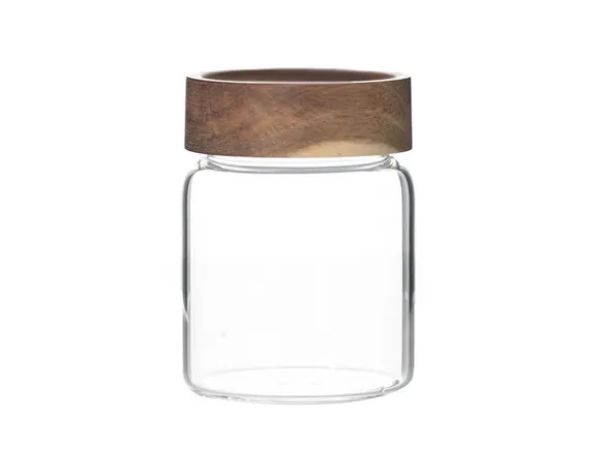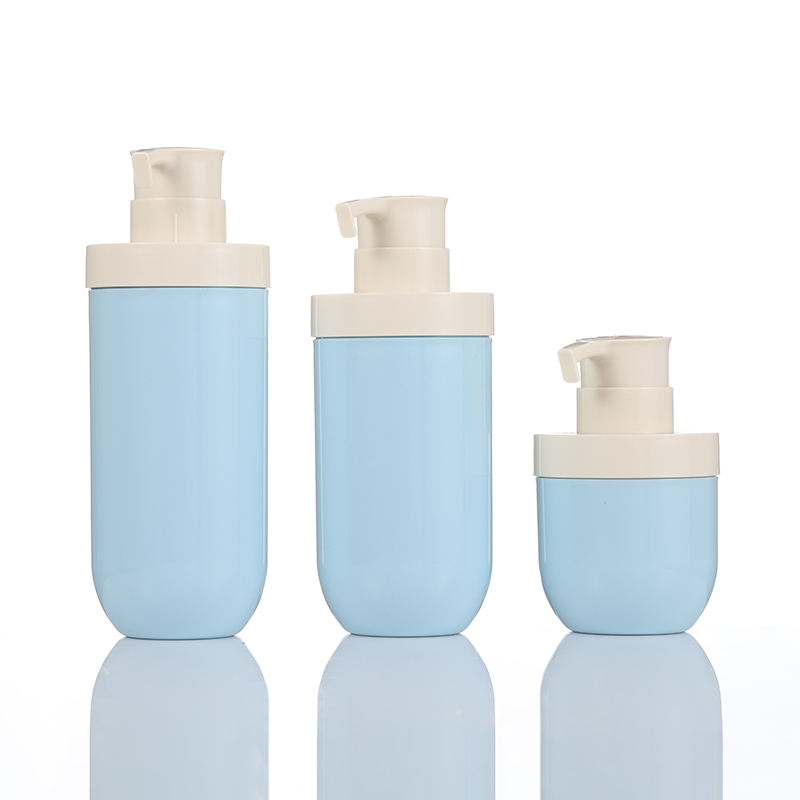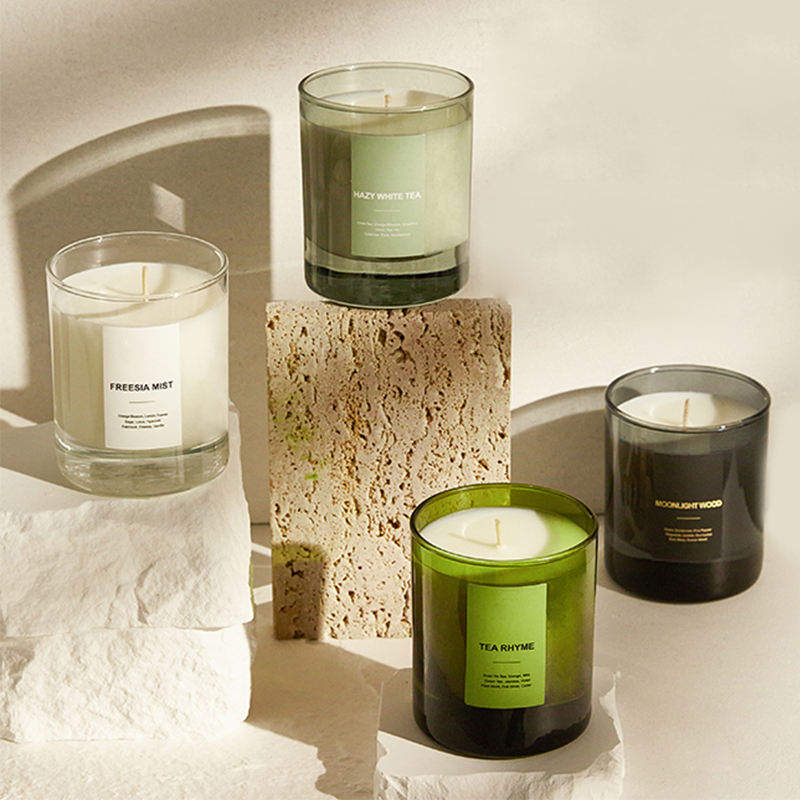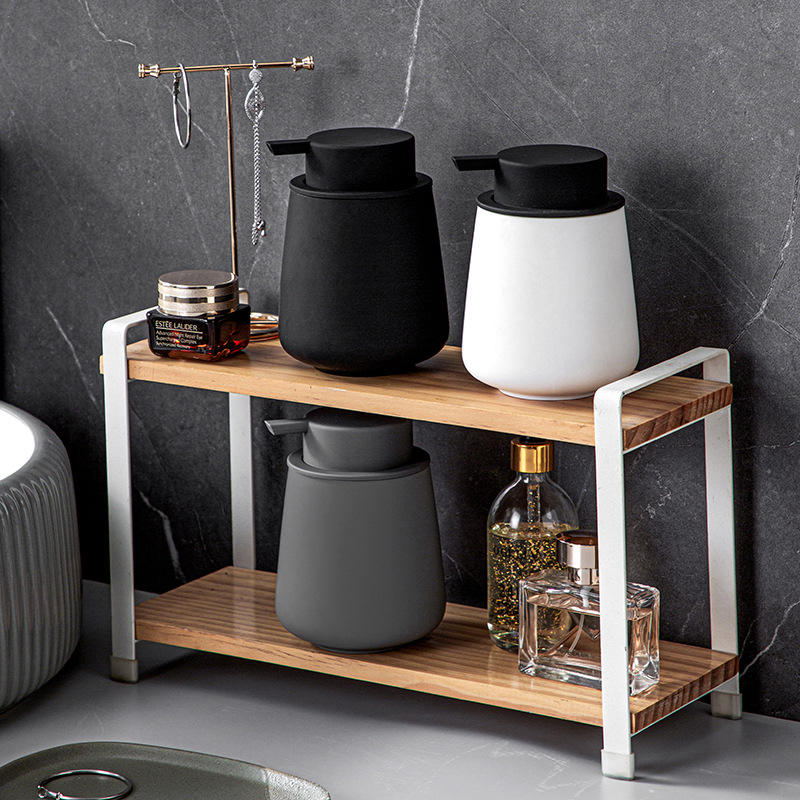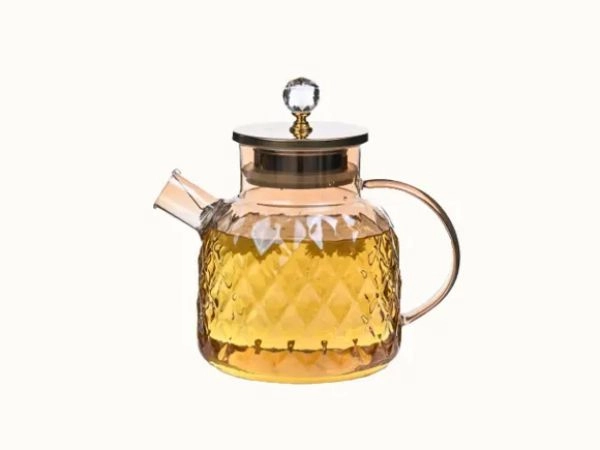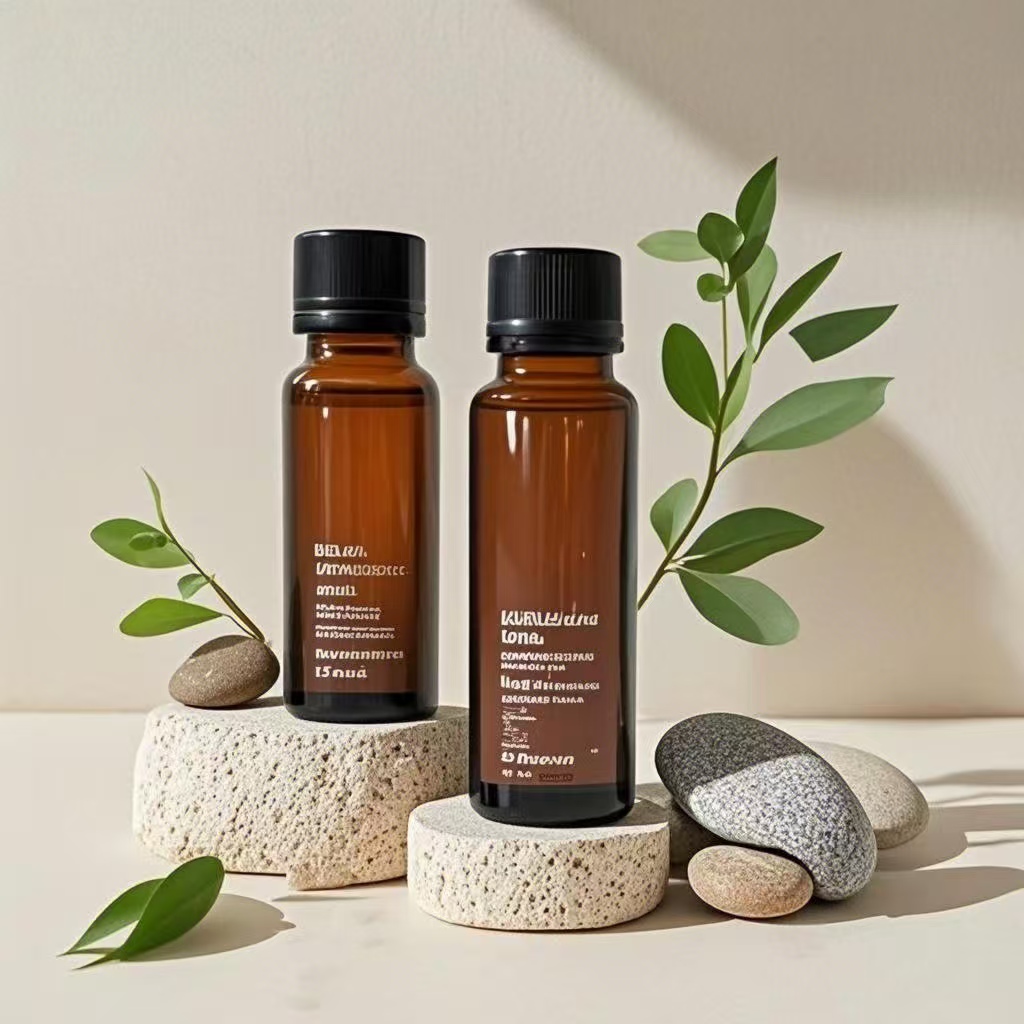In the competitive oil market—whether it's essential oils, edible oils, or cosmetic oils—packaging plays a key role in attracting customers and building brand loyalty. As consumers increasingly prioritize quality and appearance, partnering with the right manufacturer for custom oil bottle packaging and private label services has become a strategic necessity. This guide will provide you with everything you need to know about selecting a manufacturer, designing custom packaging, and leveraging private label solutions to elevate your brand's presence in the global market.
Why Custom Oil Bottle Packaging Is Important for Your Business
In today's saturated market, generic packaging simply won't cut it. Custom oil bottle packaging offers numerous advantages that can directly impact your profitability and brand recognition:
Brand differentiation
With so many essential oil products vying for attention on store shelves and online, unique packaging can make yours stand out. A well-designed essential oil bottle, incorporating personalized elements like a unique shape, color, or label, instantly conveys your brand's uniqueness and values, making it easier for customers to identify and remember your product.
Enhanced product protection
Oils, especially essential and cosmetic oils, are sensitive to light, heat, and air. Custom packaging allows manufacturers to create bottles with specific features, such as UV-protective glass, airtight lids, or dropper inserts, to preserve product integrity and extend shelf life. This not only ensures product quality but also reduces returns and customer complaints.
Target Marketing
Custom packaging allows you to tailor your message to specific customer segments. For example, environmentally conscious consumers might respond positively to a bottle made from recycled materials and featuring a minimalist eco-label. Conversely, a premium petroleum brand might choose a stylish, upscale glass bottle with gold foil accents to appeal to upscale buyers.
Regulatory compliance
Different regions have strict regulations regarding oil product labeling, including ingredient lists, safety warnings, and country of origin information. A reputable custom oil bottle packaging manufacturer will ensure your design meets all legal requirements, avoiding costly fines and market access delays.
Choosing the Right Oil Bottle Manufacturer: Key Considerations
Choosing the right manufacturer for your custom oil bottle packaging is a decision that impacts every aspect of your product’s success. Here are the key factors to evaluate:
Industry experience
Look for manufacturers with a proven track record in oil bottle production. These companies understand the unique challenges of oil packaging, such as preventing leaks, maintaining viscosity, and preserving aromatic properties. Request case studies or samples of similar products to assess their expertise.
Customization capabilities
A good manufacturer will offer a wide range of customization options to help you realize your vision. These options include:
Material choice: Glass, plastic (PET, HDPE) or eco-friendly alternatives like bamboo or recycled materials
Bottle shapes and sizes: from small 5 ml bottles for essential oils to large 5 liter containers for cooking oils
Closure type: screw cap, dropper, pump or sprayer
Printing and labeling: screen printing, digital printing, embossing or debossing
Color options: Clear, opaque, or custom color bottles
Private label services
If you're looking to build a brand without investing in production facilities, prioritize manufacturers that offer comprehensive private label services. This includes not only customized packaging but also formulation assistance (for businesses selling branded oils), label design, and even logistics support. A one-stop private label solution saves time and streamlines the production process.
Quality Control Standards
Consistent quality is crucial for packaging. You can consult your manufacturer's quality control processes, such as:
Materials testing to ensure purity and durability
Leak testing of all bottle and closure combinations
Visual inspection for printing or construction defects
Comply with international standards such as FDA, EU 10/2011 or ISO certification
Production capacity and delivery time
Consider your current and future production needs. Ideally, your manufacturer should be able to conduct small-batch testing, but they should also have the capacity to scale up as your business grows. Additionally, clearly communicating lead times from design approval to production and shipment is crucial to meeting market deadlines.
Sustainable Development Practices
As consumers become increasingly concerned about environmental issues, partnering with manufacturers committed to sustainable practices can enhance your brand's reputation. Ask them about their efforts to reduce waste, use recycled materials, or implement eco-friendly production processes. Many leading manufacturers now offer biodegradable plastics, recyclable glass, and minimalist packaging designs.
Private Label Advantages: Build Your Brand Without the Hassle
Private label oils—that is, oils produced by a manufacturer sold under their own brand name—are increasingly popular among entrepreneurs and established businesses. Here's why private label services from reputable manufacturers can be a game-changer:
Lower initial investment
Developing your own production facilities is cost-prohibitive for most businesses. The private label model allows you to launch a branded product line with minimal upfront costs because you can leverage a manufacturer's existing production capabilities.
Faster time to market
It can take years to design, test, and prepare a new oil for production. With private label services, you can bypass much of this process and bring your product to market in just a few months. This agility is especially valuable in a rapidly changing market.
Focus on branding and marketing
By outsourcing production to a manufacturer, you can focus your resources on what truly differentiates your business: building brand awareness, developing a marketing strategy, and engaging with customers. This focus often leads to stronger brand loyalty and faster business growth.
Flexibility and adaptability
Private label manufacturers typically offer a range of pre-formulated oil bases that you can customize by scent, composition, or concentration. This allows you to quickly respond to market demands, such as launching a new essential oil blend or cooking oil with specific health benefits, without having to make major production adjustments.
Designing Effective Custom Oil Bottle Packaging: Best Practices
Once you’ve chosen a manufacturer, the next step is to create packaging that’s visually appealing, functional, and effectively communicates your brand message. Here are some packaging design best practices to consider:
Prioritize functionality
While aesthetics are important, your essential oil bottle must first serve a practical purpose. Consider:
Easy to pour or dispense (especially important for cooking oils)
Secure seal to prevent spillage during transportation and storage
A size appropriate for the intended use (travel-sized essential oils, larger containers for home cooking oils)
Labels are clear and easy to read, even on small bottles
Reflect your brand image
Your packaging should tell a consistent brand story. If your essential oils are organic and sustainably sourced, incorporate natural colors and imagery that reflect these values. For luxury brands, consider using premium materials like frosted glass or metal accents. Maintaining consistency across all products—from bottle shape to logo placement—helps build brand recognition.
Consider shelf appeal
When designing for retail, consider how your bottle will look on the shelf against other products. A unique shape or bold color can really catch a potential customer's eye. High-quality packaging photography is crucial for online sales, so make sure your design is clearly captured in your photography.
Keep it simple
Overly complex designs can confuse customers and increase production costs. Focus on one or two key design elements to make your packaging memorable—a distinctive logo, a unique bottle shape, or a signature color scheme. Cluttered labels with too much text are not only difficult to read but also fail to effectively communicate your brand message.
Pre-production testing
Before going into mass production, please order custom oil bottle samples. Test them under real conditions:
Lay the bottle on its side to check for leaks
Ensures labels remain intact after exposure to moisture or oil
Get feedback from potential customers on design and functionality
A reputable manufacturer will work with you to make adjustments based on your test results, ensuring the final product meets your expectations.
Case Study: Custom Oil Bottle Packaging Success Stories
To illustrate the impact of effective custom packaging and private label services, let’s look at two businesses that transformed their brand image by forming strategic partnerships with manufacturers:
Essential Oil Brands: From Ordinary to Well-Known
A small business selling essential oils was struggling to stand out in a crowded market. Their products were high-quality, but packaged in standard amber glass bottles with sparse labels, nearly identical to those of dozens of competitors. After partnering with a manufacturer specializing in custom essential oil packaging, they launched:
Each oil has a unique bottle shape (for example, lavender oil has a teardrop-shaped bottle)
Custom color labels to match the oil's characteristics
Each bottle cap is embossed with a unique logo
Environmentally friendly packaging materials, with a QR code for instructions on use
Within six months, their sales increased by 40%, and customer surveys showed a significant increase in brand awareness. The customized packaging not only attracted new customers but also justified a 15% price increase, as customers perceived the higher value of the premium packaging.
Edible oil companies: Expanding scale with private brands
A family-owned olive oil producer wanted to expand into the local market but lacked the resources to establish a national distribution network. They partnered with a private label manufacturer that sold the following products:
Custom bottle design featuring their family crest and the story of their olive tree
Using their secret recipe to produce the oil
Labeling that complies with state and regional regulations
Bulk shipment to distributors
By focusing on marketing and building relationships with retailers, they grew from a local brand to a nationally recognized brand in two years. The private label model allowed them to scale without investing in additional production facilities, while the custom packaging helped them position their products as high-end, handmade goods.
How to Find the Best Oil Bottle Manufacturer for Your Needs
Now that you understand the importance of custom packaging and private label services, here’s a step-by-step guide to finding the right manufacturer:
1. Identify your needs
Before you begin your search, clearly outline your needs:
Type of oil (essential oil, cooking oil, cosmetic, etc.)
Bottle size and quantity
Material Preference
Customization options (shape, color, printing)
Need private label services
Budget and timeline
Having a detailed list will help you narrow down your potential manufacturers and ensure you receive an accurate quote.
2. Research the manufacturer
Start by conducting online research using keywords like "custom oil bottle manufacturer," "private label oil packaging," and "custom oil bottle supplier." Look for companies with the following characteristics:
A professional website that showcases its capabilities
Positive customer reviews and testimonials
Case studies or a portfolio of similar work
Clear information about their services and certifications
Trade shows and industry associations, such as the Packaging Institute or the National Association of Manufacturers, are also valuable resources for finding reputable manufacturers.
3. Request samples and quotes
Once you've identified a few potential manufacturers, request samples and detailed quotes from them. Be sure to ask for the following information:
Minimum order quantity
Production lead time
Customization costs (e.g., mold fees for unique bottle shapes)
Shipping options and costs
Quality Control Process
Comparing samples side by side can give you a better idea of quality, while detailed quotes can help you assess the total cost rather than just the unit price.
4. Evaluate Communication and Customer Service
A manufacturer's responsiveness and willingness to collaborate are just as important as their technical capabilities. Pay attention to how quickly they respond to your inquiries, whether they ask detailed questions about your needs, and how flexible they are with custom requests. A good manufacturing partner will act as a consultant, offering suggestions for improving designs or reducing costs.
5. Start with small orders
Before committing to large-scale production, place a small test order. This allows you to:
Evaluate the quality of the final product
Testing packaging performance during transport and storage
Get customer feedback on your design
Evaluate the manufacturer's reliability and communication during the production process
A successful small order is a good indicator that the manufacturer can meet your needs for larger production runs.
Future trends in oil bottle packaging
As consumer preferences and technology continue to evolve, keeping up with packaging trends can give your brand a competitive advantage. Here are some trends to watch:
Sustainable materials
The demand for eco-friendly packaging continues to grow, and consumers are increasingly willing to pay a premium for products with sustainable packaging. Look for manufacturers that offer:
Bottles made from recycled or biodegradable materials
Refillable or reusable container options
Reduce packaging and plastic use
Plant-based plastics break down faster in the environment
Smart packaging
Emerging technologies are making packaging more interactive and informative. Potential innovations include:
QR codes linking to product videos, usage tips, or sustainability reports
Temperature-sensitive labels that indicate whether a product has been exposed to high temperatures
NFC chip allows customers to verify authenticity or access detailed product information using their smartphone
Minimalist design
Clean, functional packaging is growing in popularity, especially among younger consumers. This trend aligns with sustainability goals, as minimalist designs often use less material and are easier to recycle.
Personalization
Advances in digital printing technology have made it more affordable to personalize packaging in small batches. This allows brands to offer limited-edition designs or even custom labels to individual customers, creating a unique and memorable experience that builds loyalty.
in conclusion
Investing in custom oil bottle packaging and private label services isn't just a design choice; it's a strategic business decision that can enhance brand awareness, safeguard product quality, and boost sales. By partnering with the right manufacturer, you can create packaging that not only meets functional needs but also resonates with your target audience and communicates your brand's values.
Remember, the best packaging solutions come from careful planning, clear communication with manufacturers, and a balance of aesthetics and functionality. Whether you’re launching a new petroleum product or reinventing an existing line, custom packaging can help you stand out in a competitive market.
Take the time to research manufacturers, test samples, and refine your designs—and you’ll be well on your way to creating packaging that not only looks great but also contributes to the long-term success of your brand.



